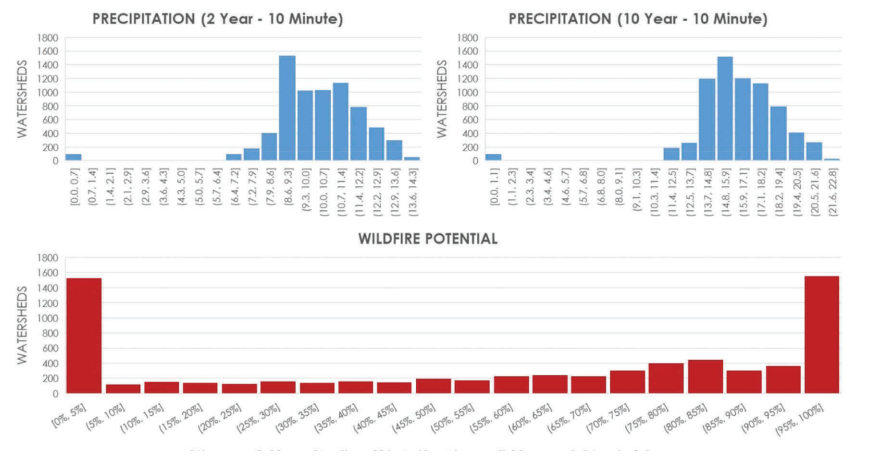
As the frequency and severity of wildfires in the U.S. grows, researchers are scrambling to measure and identify risk to infrastructure. It’s not just wildfires that can damage transportation infrastructure; it’s the flooding that comes afterward.
More from a recent paper published in Sustainable and Resilient Infrastructure:
● Transportation infrastructure is vulnerable to postfire flooding, which can be many times larger than the level of flow that the original engineer considered when designing the infrastructure;
● The vulnerability of infrastructure to post-fire flooding varies according to physical factors of the associated drainage area including size, slope, and its variation throughout the drainage area, and the severity of the fire;
● When post-fire flooding overwhelms the transportation infrastructure failures inevitably occur and communities have varying levels of risk depending on the nature of the infrastructure that exists, its vulnerability to post-fire flooding, and the level of redundancy in the transportation infrastructure for that community; and
● In addition to protecting human life and communities, wildfire mitigation efforts need to consider areas that are at high risk to post-fire impacts due to losses in critical infrastructure.


